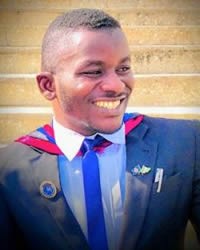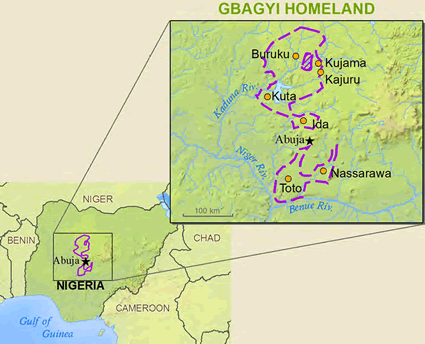The Gbagyi are widespread in Niger, Kaduna, and Plateau states and the Federal Capital Territory. Some live in Kogi state. In many places, particularly in FCT, Kogi and Kaduna states, they are interspersed with other people.
They are divided into two main groups. The eastern groups is called Gbagyi-Ngenge or Gbagyi-Matai and they are more populous. The western groups are called Gbagyi-Nkwa or Gbagyi-Yamma. The western and eastern groups speak different languages, and within them, there are sub-groups and dialects. Not all Gbagyi agree on what the divisions are.
Whereas the Gbagyi people living in towns and cities are quite modernized, the vast population of rural dwellers are little affected by modern ways. Their attitude towards modern clothing and medical care is increasingly positive, but most rural Gbagyi, being farmers, see education as a waste of time. The average literacy level is 27%. Primary schools and health facilities are not well distributed. In many places, roads are very poor or lacking. The most underdeveloped area of Gbagyi land is the northern part of Shiroro LGA, into southern Rafi LGA. The situation is only a little better in Chikun LGA or Kaduna State, especially around Gwagwada and Godani. In northern Shiroro LGA, there are no motorable roads in rainy season except the rpoor rad from Padogari to Alawa town. Some parts of Gutara LGA are very backward too. A wide area of Gbagyi in the southern FCT is poor in terms of roads and other amenities.
The Gbagyi people attach absolute importance to farming. They grow yam and grain. Women take great pride in their large piles of firewood. Occupations like hunting and weaving are not common nowadays as they were in earlier days. The people are quite friendly with strangers but it takes time to build firm friendships based on trust. All Gbagyi are shoulder carriers.
Scripture Prayers for the Gbagyi in Nigeria.
| Profile Source: Anonymous |











